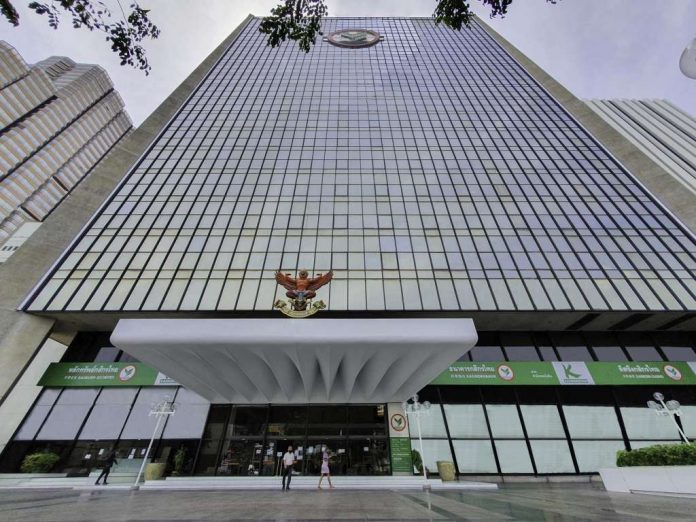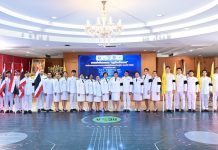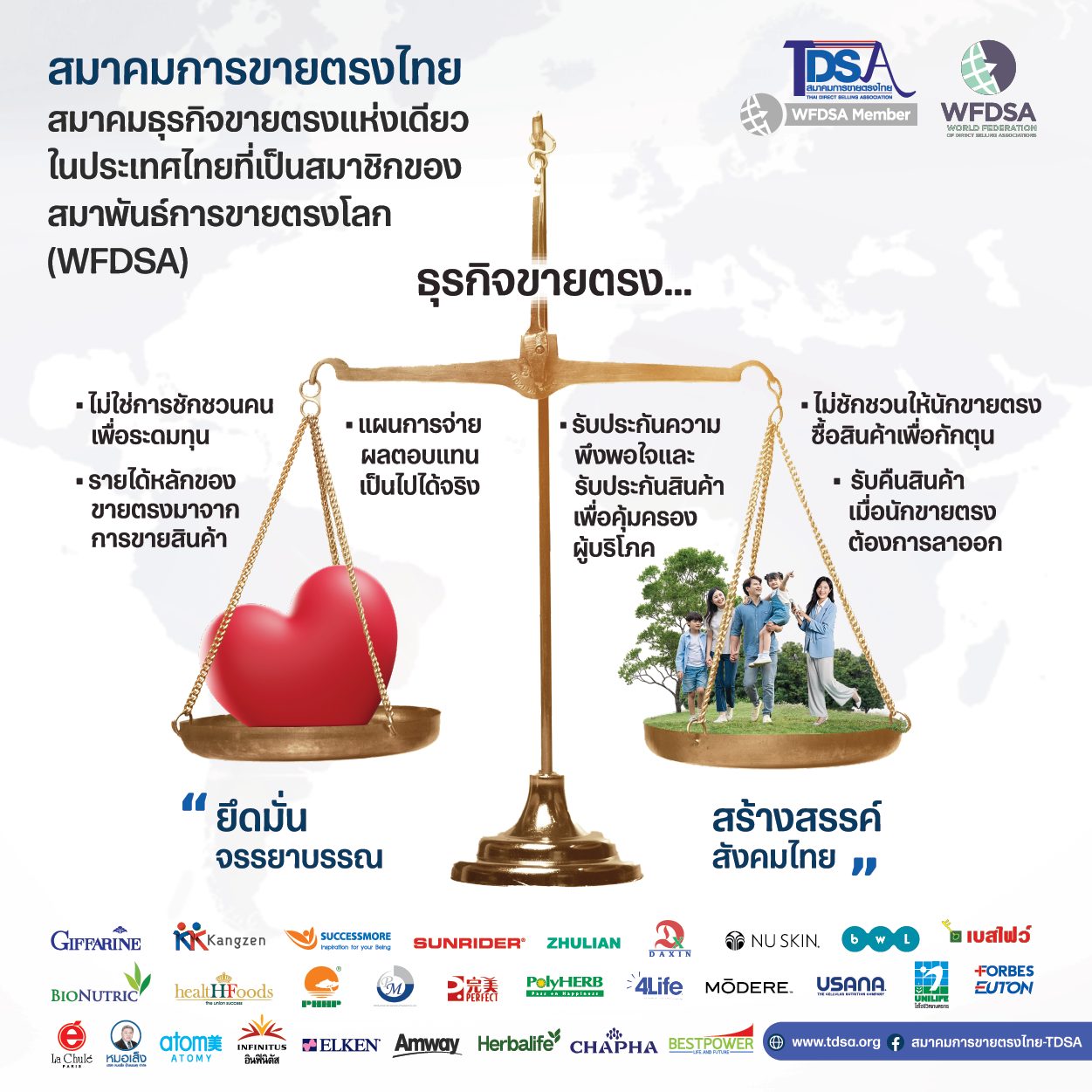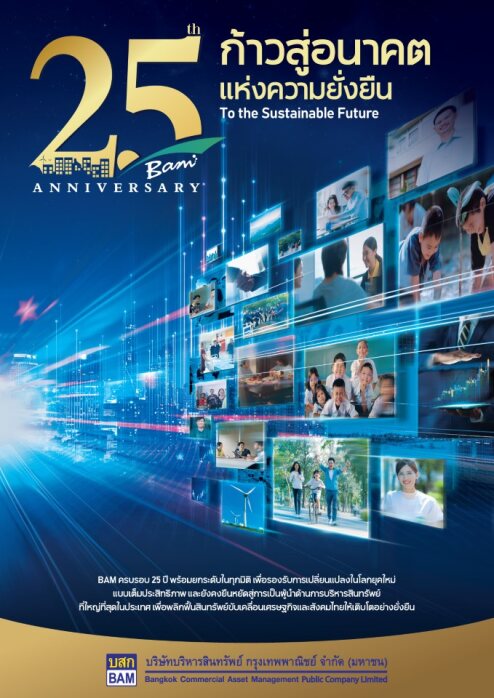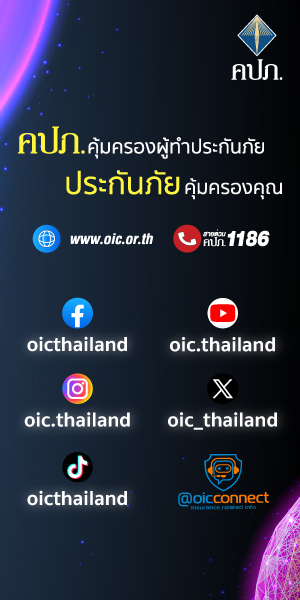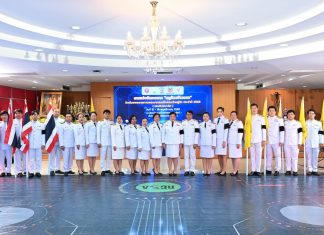ธนาคารกสิกรไทย ธนาคารพาณิชย์สัญชาติไทยแห่งแรกและแห่งเดียว เดินหน้าเข้าสู่ปีที่ 3 ของ “หลักการธนาคารที่รับผิดชอบ ขององค์การสหประชาติ” (UN Principles for Responsible Banking) สอดรับกับยุทธศาสตร์ธนาคารแห่งความยั่งยืนอย่างต่อเนื่อง พร้อมแลกเปลี่ยนความรู้ประสบการณ์กับธนาคารกว่า 240 แห่งทั่วโลก ใช้เครื่องมือของยูเอ็นวิเคราะห์ วางโรดแมปไปสู่ความยั่งยืนในอนาคต ขณะเดียวกันยังเพิ่มการสนับสนุน “สินเชื่อสีเขียว” ในธุรกิจที่เป็นมิตรกับสิ่งแวดล้อม และละเว้นการสนับสนุนสินเชื่อให้แก่โรงไฟฟ้าถ่านหินที่เกิดใหม่ ยกเว้นโรงไฟฟ้ามีการเปลี่ยนรูปแบบพลังงานเป็นแหล่งพลังงานคาร์บอนต่ำ และทยอยลดเงินกู้ปัจจุบันในโครงการโรงไฟฟ้าถ่านหินที่มีอยู่แล้วให้เป็นศูนย์ภายในปี 2573 มุ่งหวังร่วมสร้างการเปลี่ยนแปลงเชิงบวก ส่งมอบโลกที่ยั่งยืนให้คนรุ่นต่อไป

นางสาวขัตติยา อินทรวิชัย ประธานเจ้าหน้าที่บริหาร ธนาคารกสิกรไทย เปิดเผยว่า เนื่องจากภาวะการเปลี่ยนแปลงของสภาพภูมิอากาศโลกเป็นเรื่องเร่งด่วนที่ทุกธุรกิจ ทุกองค์กรและทุกคนบนโลกต้องร่วมมือกันอย่างจริงจังเพื่อช่วยบรรเทาและลดปัญหาที่นำไปสู่การแปรปรวนของภูมิอากาศโลก หรือ ภาวะโลกรวน ดังนั้นธนาคารกสิกรไทยเป็นธนาคารพาณิชย์สัญชาติไทยแห่งแรกและแห่งเดียว จึงได้ร่วมกับธนาคารกว่า 240 แห่ง ใน 69 ประเทศ มีสินทรัพย์รวมคิดเป็น 40% ของมูลค่าสินทรัพย์ธุรกิจธนาคารทั่วโลก ที่ได้ลงนามใน “หลักการธนาคารที่รับผิดชอบ ขององค์การสหประชาชาติ” (UN Principles for Responsible Banking: UN PRB) ของสำนักงานโครงการสิ่งแวดล้อมแห่งองค์การสหประชาชาติว่าด้วยข้อริเริ่มด้านการเงิน (United Nations Environmental Program Finance Initiative: UNEP FI) ซึ่งเปิดตัวโครงการเมื่อเดือนกันยายน 2562 และธนาคารลงนามรับหลักการในเดือนกุมภาพันธ์ 2563 โดยในปีนี้โครงการ UN PRB กำลังเดินหน้าเข้าสู่ปีที่ 3 อย่างเข้มข้น
บทบาทที่ธนาคารกสิกรไทยดำเนินการอย่างต่อเนื่องมาโดยตลอด และสอดคล้องกับ “หลักการธนาคารที่รับผิดชอบแห่งสหประชาชาติ” คือ การดำเนินธุรกิจบนหลักการธนาคารแห่งความยั่งยืน แม้ท่ามกลางความท้าทายจากการแพร่ระบาดของโควิด-19 ธนาคารยังคงให้ความสำคัญกับการประเมินความเสี่ยงด้านสิ่งแวดล้อม สังคม และธรรมาภิบาล (Environmental, Social and Governance factors: ESG) ควบคู่กับการดูแลลูกค้าให้ผ่านพ้นวิกฤติและสามารถเดินหน้าในการทำธุรกิจและดำเนินชีวิตต่อไปได้ในภาวะปกติใหม่ (New Normal) และสนับสนุนลูกค้าให้เปลี่ยนผ่านไปสู่สังคมคาร์บอนต่ำหรือมุ่งสู่ก๊าซเรือนกระจกสุทธิเป็นศูนย์ โดยในการดำเนินงานทั้งหมดนี้ ธนาคารสร้างการมีส่วนร่วมกับผู้มีส่วนได้ส่วนเสียทุกฝ่ายมาอย่างต่อเนื่องและสื่อสารด้วยความโปร่งใส
นอกจากนี้ ธนาคารกสิกรไทยได้ร่วมแลกเปลี่ยนประสบการณ์กับธนาคารอื่น ๆ ที่ลงนาม UN PRB จากทั่วโลก (Signatory Banks) รวมทั้งการนำเครื่องมือของ UNEP FI วิเคราะห์พอร์ตสินเชื่อลูกค้าธุรกิจรายใหญ่ และกำหนดเป้าหมายการดำเนินธุรกิจที่ตอบสนองวาระด้านความยั่งยืนของโลกเรื่องลดผลกระทบการเปลี่ยนแปลงสภาพภูมิอากาศ (Reducing the Impact of Climate Change) ได้แก่ ส่งเสริมธุรกิจที่เป็นมิตรกับสิ่งแวดล้อม ด้วยการปล่อยสินเชื่อพลังงานทดแทนให้ได้ 15% ของส่วนแบ่งการตลาดด้านกำลังการผลิต (เมกะวัตต์) และการปล่อยกู้อาคารประหยัดพลังงานให้ได้ 10% ของพอร์ตอสังหาริมทรัพย์ ภายในปี 2568 และละเว้นการสนับสนุนสินเชื่อให้แก่โรงไฟฟ้าถ่านหินที่เกิดใหม่ ยกเว้นโรงไฟฟ้ามีการเปลี่ยนรูปแบบพลังงานเป็นแหล่งพลังงานคาร์บอนต่ำ และทยอยลดเงินกู้ปัจจุบันในโครงการโรงไฟฟ้าถ่านหินที่มีอยู่แล้วให้เป็นศูนย์ภายในปี 2573 เพื่อขับเคลื่อนไปสู่เป้าหมายธนาคารในการสร้าง “สังคมคาร์บอนเป็นศูนย์”
นางสาวขัตติยา กล่าวตอนท้ายว่า ธนาคารกสิกรไทยพร้อมเดินหน้าขับเคลื่อนธุรกิจบน “หลักการธนาคารที่รับผิดชอบ ขององค์การสหประชาชาติ” ที่กำลังเข้าสู่ปีที่ 3 ทั้งนี้ ปัจจัยสำคัญที่จะทำให้ธนาคารบรรลุเป้าหมายความยั่งยืน ในวาระเร่งด่วนเรื่องลดผลกระทบการเปลี่ยนแปลงสภาพภูมิอากาศ คือ การสร้างความพร้อมของบุคลากร หล่อหลอมในกระบวนการทำงานจนเกิดเป็นกรีน ดีเอ็นเอ ควบคู่กับการวางโครงสร้างด้านฐานข้อมูล ESG ที่จะวิเคราะห์สถานะของธุรกิจธนาคารในมิติความยั่งยืนได้แม่นยำ ทำให้ตั้งเป้าหมายและสร้างผลลัพธ์ได้ตรงจุด เป็นแบบอย่างองค์กรที่ดีมีธรรมาภิบาล รวมทั้งการส่งเสริมให้ทุกภาคส่วนในสังคมได้ตระหนักถึงความสำคัญในเรื่องนี้ เพื่อร่วมกันสร้างการเปลี่ยนแปลงเชิงบวก บรรเทาภาวะโลกรวน และส่งมอบโลกที่สมดุลและยั่งยืนให้แก่คนรุ่นต่อไป
เกี่ยวกับ “หลักการธนาคารที่รับผิดชอบ ขององค์การสหประชาชาติ” (UN Principles for Responsible Banking)
“หลักการธนาคารที่รับผิดชอบ ขององค์การสหประชาชาติ” (UN Principles for Responsible Banking) ของสำนักงานโครงการสิ่งแวดล้อมแห่งองค์การสหประชาชาติว่าด้วยข้อริเริ่มด้านการเงิน (United Nations Environmental Program Finance Initiative: UNEP FI) ประกอบด้วย 6 ประการ ได้แก่
- Alignment: การมียุทธศาสตร์ในการดำเนินธุรกิจสอดคล้องกับเป้าหมายการพัฒนาที่ยั่งยืนขององค์การสหประชาชาติ (Sustainable Development Goals: SDGs) ข้อตกลงปารีส (Paris Agreement) และหลักการที่เกี่ยวข้อง
- Impact & Target Setting: การกำหนดและเผยแพร่เป้าหมายที่ธนาคารสร้างผลกระทบอย่างมีนัยสำคัญ
- Clients & Customers: การปฏิบัติต่อลูกค้าอย่างรับผิดชอบและผลักดันให้เกิดแนวปฏิบัติที่ยั่งยืน
- Stakeholders: การมีส่วนร่วมของผู้มีส่วนได้เสียที่เกี่ยวข้อง
- Governance & Culture: การกำกับดูแลและวัฒนธรรมองค์กรสอดคล้องกับหลักการธนาคารที่รับผิดชอบ
- Transparency & Accountability: การทบทวนและเปิดเผยข้อมูลตามหลักการธนาคารที่รับผิดชอบKBank conducts business in line with the UN Principles for Responsible Banking – now in its third year, joining more than 240 other banks in creating positive change for the world, sustainably
As the first and only Thai commercial bank being a signatory to the UN Principles for Responsible Banking, which is entering its third year, KASIKORNBANK (KBank) has continued to operate its business in line with the Principles of a Bank of Sustainability. KBank has exchanged knowledge and expertise with more than 240 other banks worldwide, and has adopted UN tools for analyzing and developing a roadmap towards a sustainable future. Meanwhile, KBank has enhanced its support of environmentally friendly businesses by granting more ‘Green Loans’ and refraining from financing new coal-fired power generation unless there is an energy transition strategy to other low carbon resources. KBank targets to gradual existing long-term loan for coal-fired power generation which will be completely discharged by Y2030. All of the Bank’s endeavors aim to spark positive changes in society and pass a cleaner world on to future generations.
Ms. Kattiya Indaravijaya, KBank Chief Executive Officer, noted that climate change is now high on the agenda for our planet. To address the root causes of the climate crisis, concerted action from all businesses, organizations and every one of us is needed. KBank is the first and only Thai commercial bank that has joined with more than 240 other banks in 69 countries – representing 40 percent of banking asset worldwide – in signing the UN Principles for Responsible Banking (UN PRB) of the United Nations Environmental Program Finance Initiative (UNEP FI) which was launched in September 2019. KBank became a signatory to the Principles in February 2020. The UN PRB initiative is now entering its third year.
KBank’s continuing role that is in line with the UN PRB is its business engagement, which is based on the principles of a Bank of Sustainability. Despite challenges from the COVID-19 pandemic, KBank continues to place emphasis on an environmental, social and governance (ESG) risk assessment together with ensuring that its customers can weather the crisis and press ahead with their businesses and lives amid the ‘new normal’ environment. Additionally, KBank has supported its customers to make a transition towards a society of low carbon or net-zero greenhouse gas emissions. All of these efforts have been carried out with the engagement of all stakeholders through transparent communication.
Moreover, KBank has exchanged its experience with other banks worldwide that are also signatories to the UN PRB, and used UNEP FI’s tools to not only analyze loan portfolios of large corporate customers, but also establish business goals in response to global sustainability agenda regarding the reduction of the impact of climate change. Such goals include promoting environmentally friendly businesses by increasing the share of KBank’s renewable energy financing to 15 percent of the market in terms of production capacity (megawatts),and increasing the percentage of loan outstanding of green building projects to total real estate portfolio to 10.0% by Y2025. KBank will refrain from financing new coal-fired power generation unless there is an energy transition strategy to other low carbon resources. In so doing, KBank targets for gradually existing long term loan for coal-fired power generation which will be completely discharged by Y2030 as part of its efforts to achieve a zero-carbon society.
Ms. Kattiya added that, in terms of its operations, KBank is ready to forge ahead under the UN Principles for Responsible Banking which is now entering its third year. Key factors that will enable KBank to achieve the Sustainable Development Goals in reducing climate change impacts, are the reinforcement of employees’ preparedness throughout our operations, as part of our Green DNA, and the establishment of the Environment, Social and Governance (ESG) database to analyze the Bank’s sustainable development operations with precision. These practices have allowed us to set targets and achieve effective results, cementing KBank’s reputation as an exemplary organization with good corporate governance. At the same time, awareness should be raised among every faction of society with regard to the importance of sustainability in order to ignite positive changes, mitigate climate change and pass a clean world on to future generations.
About the UN Principles for Responsible Banking
The UN Principles for Responsible Banking of the United Nations Environment Program Finance Initiative (UNEP FI) consist of six principles, as follows:
- Alignment: We will align our business strategy to be consistent with and contribute to individuals’ needs and society’s goals, as expressed in the Sustainable Development Goals, the Paris Climate Agreement and relevant national and regional frameworks.
- Impact & Target Setting: We will continuously increase our positive impacts while reducing the negative impacts on, and managing the risks to, people and environment resulting from our activities, products and services. To this end, we will set and publish targets where we can have the most significant impacts.
- Clients & Customers: We will work responsibly with our clients and our customers to encourage sustainable practices and enable economic activities that create shared prosperity for current and future generations.
- Stakeholders: We will proactively and responsibly consult, engage and partner with relevant stakeholders to achieve society’s goals.
- Governance & Culture: We will implement our commitment to these Principles through effective governance and a culture of responsible banking.
- Transparency & Accountability: We will periodically review our individual and collective implementation of these Principles and be transparent about and accountable for our positive and negative impacts and our contribution to society’s goals.



